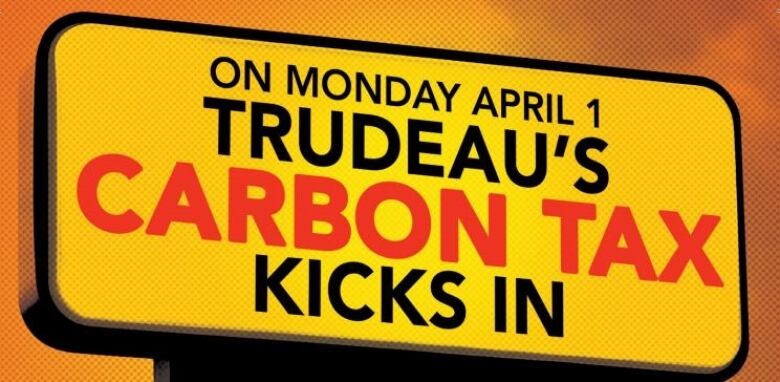Conservatives plan to mass-text voters in 4 provinces to campaign against carbon tax
Federal carbon plan comes into effect April 1

The Conservatives are using a new tactic to reach voters with an attack on the federal government's carbon tax just days before it comes into effect.
The Official Opposition party is deployingthe usual political outreach tools ad buys and doorstep campaigning but it's also planning to send messages directly to voters'phones in the four provinces where the federal carbon pricing policy is being introduced.
Starting Thursday,the Conservative Partywill be mass-textingvoters with a message from federal Leader Andrew Scheer insistingthe Trudeau government's carbon tax has to go.
One of the planned texts reads: "Andrew Scheer here.Trudeau's carbon tax will raise gas prices 5 cents on Monday, so fill your tank!"
The party is pulling phone numbers from its own databaseand using softwarethat randomly generates phone numbers based on area codes. So even if you've never shared your phone number with the Conservative Party of Canada, you might get the texts.
It's a "full-court press," party spokespersonCory Hann told CBCNews.
"It's about using 21st century technology to help with voter outreach efforts."
Not illegal, but controversial
Fenwick McKelvey, a media and communications professor at Concordia University, said thatthe Conservatives'mass-texting plan is perfectly legal but it does raise some questions.
"Just because there's a technicalinnovation,it doesn't mean the parties should actually be doing that," he said.
"Ithink there's a real question here about whether setting up mass unsolicited text messages is a really good way of getting people engaged in politics."
McKelvey cited the robocallscandal as a case in point.On federal election day in May2011, hundreds of calls purporting tobe from Elections Canada and giving erroneous poll information weremade in the riding of Guelph, Ont.After the election was over, the federalelections commissioner received more than 40,000 complaints from Canadians about automated phone calls they received during the campaign butmost of those voters were complaining about receiving the calls, not their content.
"Ultimatelythe question here is if unsolicited political messages is something that voters would want," McKelveysaid.

Pushback and rebates
The federal carbon tax "backstop" kicks in April 1 in the four provinces that did not introduce their own carbon pricing systems Saskatchewan, Manitoba, Ontario and New Brunswick. (Both Nunavut and Yukon haveasked to use the federal system, which will start for them on July 1.)
The carbon tax is being charged on 21 different fuel inputs, including gasoline, at an initialrate of $20 per tonneof carbon emissions, which is to slowly rise to $50 per tonne by 2022.
The government has estimated gas prices will increase by almost five cents initially, and by roughly 11 cents per litre by 2022.
Since its inception, pushback against the Trudeau government's plan has been intense. To accommodate some of the concerns, the Liberals announced a rebate system for households in the four backstop provinces.
The Trudeau government haspromised that90 per cent of the revenue from the tax will be returned to Canadians.In those four provinces, each household will be able claim a few hundred dollars back on income tax, a rebate that will grow as the carbon price increases.
Conservative provincial governments across the country have joined with the federal partyin opposing the carbon pricing policy. The governments of Saskatchewan and Ontario are challenging the federal plan incourt, claiming it's unconstitutional.
Environmental protection orcash grab?
When the plan was introduced, provinces were given a period of time in which to present Ottawa withclimate plans of their own for approval. The federal tax is being imposed on provinces that failed to come up with approved plans.
The Trudeaugovernment introduced the policy in as part of Canada's efforts to meet 2030 emissions reduction goals agreed to at the Paris global climateconference in 2015.
Many experts have said that a carbon tax is the cheapest way to reduce greenhouse gas emissions, while opponentssay a carbon tax is nothing more that a government cash grab, rebates notwithstanding.












_(720p).jpg)


 OFFICIAL HD MUSIC VIDEO.jpg)
.jpg)



























































































